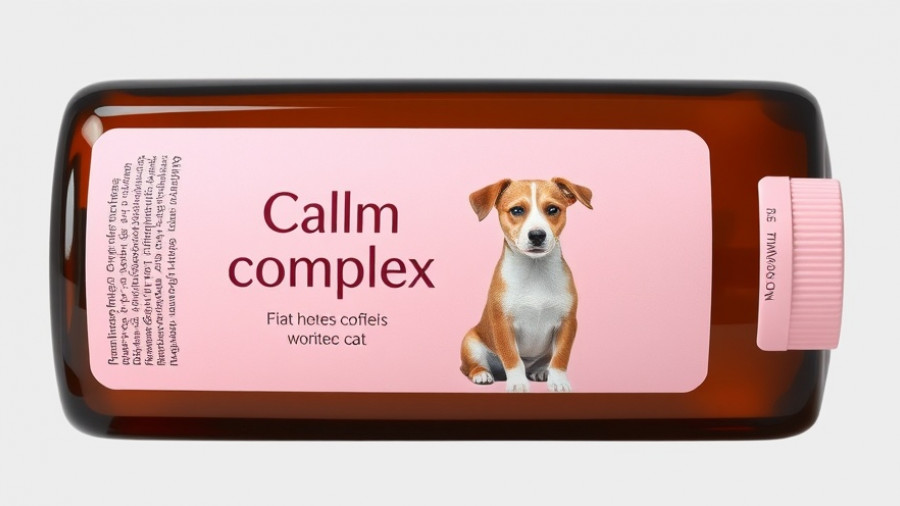
A Comprehensive Look at Common Eye Problems in Pets
As a beloved part of the family, our pets deserve the best care possible, especially when it comes to their health. One critical aspect of their health that sometimes goes unnoticed is their eyesight. Whether it's a subtle squint or a noticeable change in behavior, eye issues can often signal underlying problems. In this continuation of our series on common eye issues in pets, we explore serious conditions like glaucoma, corneal ulcers, corneal dystrophy, and progressive retinal atrophy, giving pet owners essential insights on prevention and treatment.
The Insidious Nature of Glaucoma
Glaucoma is one of the most serious eye conditions our pets can face. The condition arises when intraocular pressure builds up due to difficulties in draining ocular fluids, leading to both pain and potential blindness. Common breeds that are prone to primary glaucoma include Cocker Spaniels and Basset Hounds. Symptoms include redness, bulging eyes, squinting, and behavioral changes like pawing at the eye. Quick intervention is crucial.
Diagnosis and Treatment: Typically, a veterinarian will diagnose glaucoma using a tonometer to measure ocular pressure. Treatments range from medications to surgery, varying significantly based on whether the glaucoma is primary or secondary in nature. Acting quickly can significantly affect the chances of recovery, making it vital that pet owners remain observant.
Corneal Ulcers: The Dented Enemy
Corneal ulcers are another common yet serious eye ailment affecting pets, especially those with prominent eyes, such as French Bulldogs or Persians. These ulcers manifest as painful wounds on the cornea, which may be shallow or deep, affecting visibility and comfort. Symptoms can include excessive tearing, cloudiness, and rubbing the eyes.
Diagnosis and Treatment: The diagnosis involves using a fluorescein stain, revealing the extent of the damage. Treatments usually involve antibiotics, but deeper ulcers may require more aggressive measures. Regular check-ups can facilitate early detection and treatment, significantly increasing the odds of a full recovery.
Understanding Corneal Dystrophy and Retinal Diseases
Corneal dystrophy refers to a collection of hereditary conditions causing a clouding of the cornea, leading to impaired vision. While this is more commonly hereditary, lifestyle factors such as nutrition can contribute to the deterioration of eye health.
Progressive retinal atrophy (PRA) is another condition renowned for causing blindness in pets, characterized by a gradual deterioration of the retina. Early symptoms include night blindness and difficulty seeing in dim light. Recognizing these changes signals the need for prompt veterinary assessment.
Nutrition: The Unsung Hero in Eye Health
A well-balanced diet rich in vitamins and minerals plays a critical role in maintaining eye health. Foods high in omega-3 fatty acids as well as antioxidants like vitamins A, C, and E can significantly contribute to improved efficacy of eye health. Supplements may be beneficial, but always consult a veterinarian before integrating new products.
Proactive Measures Every Pet Owner Should Know
Aside from a nutritious diet, routine eye checks at home can catch problems before they escalate. If your pet exhibits any unusual behavior or symptoms related to their eyes, such as tearing or squinting, don't hesitate to reach out to a veterinary professional.
The Emotional Impact of Eye Problems in Pets
Not only do eye problems affect our pets physically, but they also take an emotional toll on both pet and owner. As a pet owner, seeing your companion in discomfort can be distressing. The bond we share with our pets deepens as we learn how to interpret their needs, ensuring they remain healthy and happy throughout their lives.
In conclusion, being proactive in understanding and preventing eye problems is crucial for the well-being of our pets. Ensuring regular veterinary check-ups, a nutritious diet, and a proactive approach can greatly enhance the quality of life for your furry companions.
Remember, as pet lovers, we play a critical role in maintaining our pets' health. Keep an eye out for any changes and act swiftly. Our pets depend on us.
 Add Row
Add Row  Add
Add 


Write A Comment